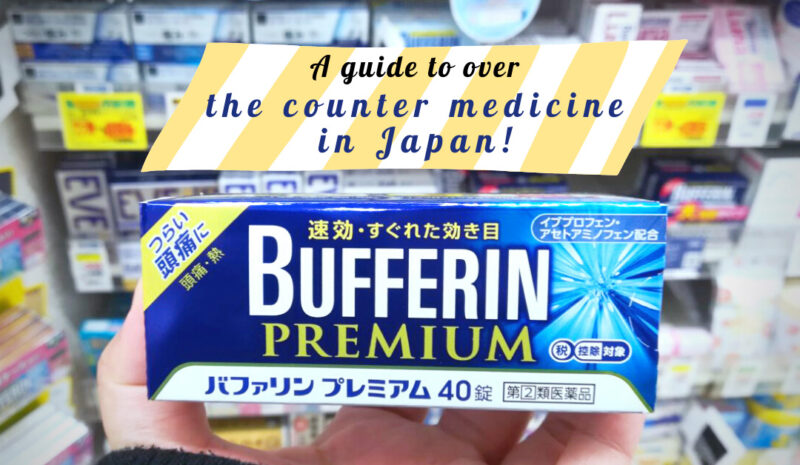Japanese seasonal sweets in Winter
Feb 08, 2022
Introduction : Japanese seasonal sweets in Winter

Japan is the only country where you can enjoy four seasons in every aspect, and one of the most popular ways to enjoy Japan’s four seasons is through its seasonal ingredients.
Japan has been using seasonal ingredients since ancient times, and the word “Shun (旬)” refers to the time of the year when a given ingredient is at its freshest and most flavorful state.
The four-season elements can be enjoyed in Japanese sweets too. So in this feature, we will introduce some Japanese sweets to enjoy in winter!
Index : Japanese seasonal sweets in Winter
1. Oshiruko
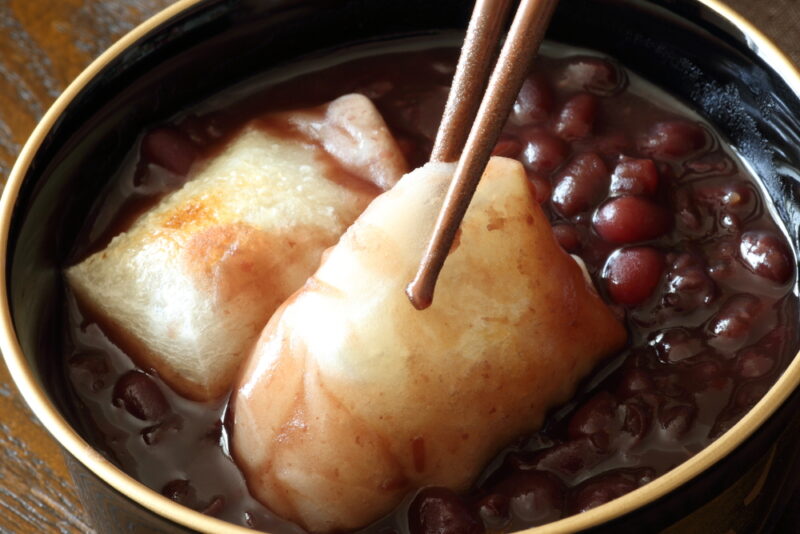
Oshiruko, or Zensai, is perhaps the most popular Japanese sweets to enjoy during the winter. It is a very simple dish that is perfect to have on a cold day. This sweet dish is made by simmering mochi cakes, or dango cakes in anko (red bean) soup. Some shiruko is made by crushing the red bean into a paste, making the soup more watery.
2. Saka Manju
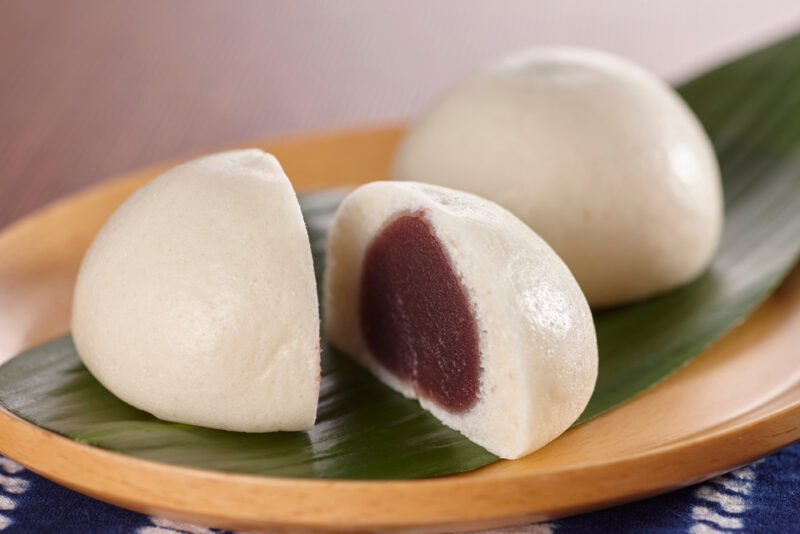
Saka Manju is a Japanese sweet that is only sold in the winter, and the outside dough is made by mixing sakadane, the yeast mash left from sake manufacturing, with sugar and flour before fermenting it. Saka manju has a chewy texture and a sweet fragrance of malted rice.
3. Nerikiri Ume
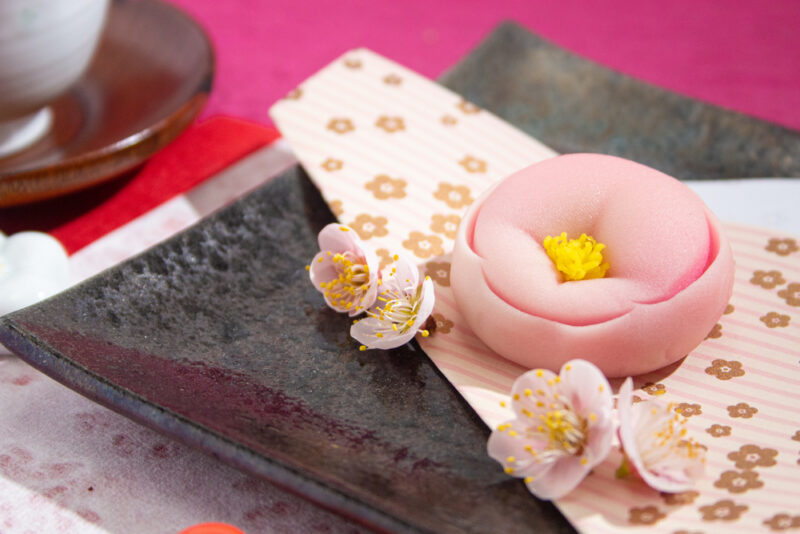
Nerikiri is a Japanese sweet served during the New Year’s celebration, and it is made by wrapping sweet red bean paste with a pink white bean paste before shaping it into a plum flower. Plum flowers are a symbol of celebration, and people serve this sweet to celebrate joy and happiness that come together with the New Year’s.
4. Uguisu Mochi
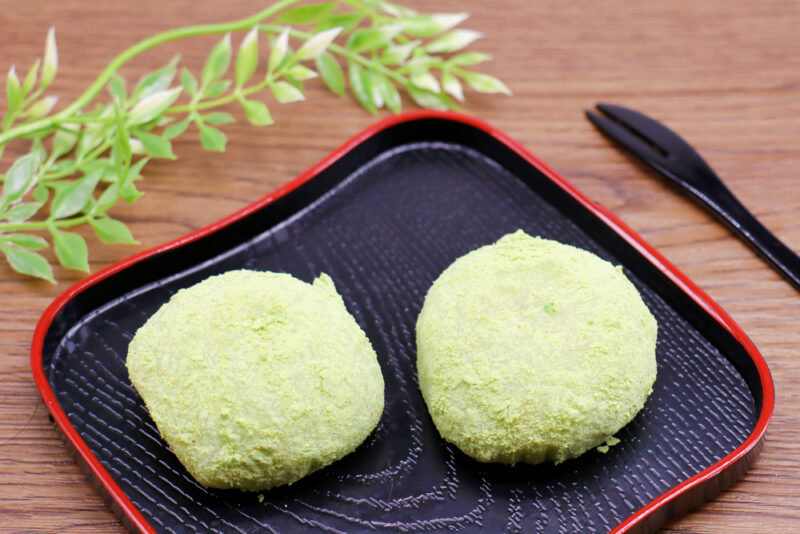
Uguisu Mochi is served in late winter, to signal the coming of spring, particularly when the uguisu (Japanese bush warblers), appear on trees starting from mid January. Uguisu mochi is made by wrapping sweet red bean paste with mochi flour before coating it with green soy bean flour.
5. Hanabira Mochi
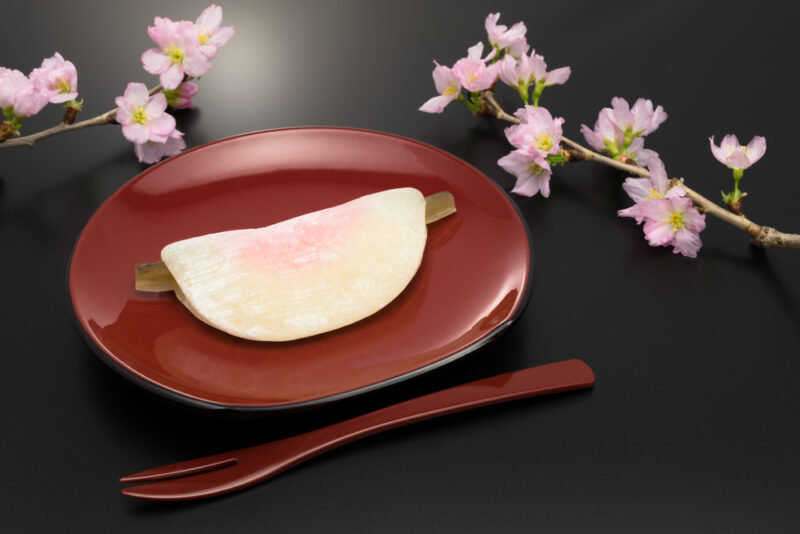
Hanabira Mochi, which looks similar to sakura mochi, is a popular Japanese sweet that is served during hatsugama, the first tea ceremony held at the beginning of a new year.
This mochi is made by boiling newly harvested burdock and sweetening it with syrup before wrapping it with a thin skin dough that is made by mixing white bean paste and white miso paste together.
Read more articles
- Japanese seasonal foods in Winter
- Japanese seasonal ingredients in Winter
- Japanese seasonal fruits in Winter
